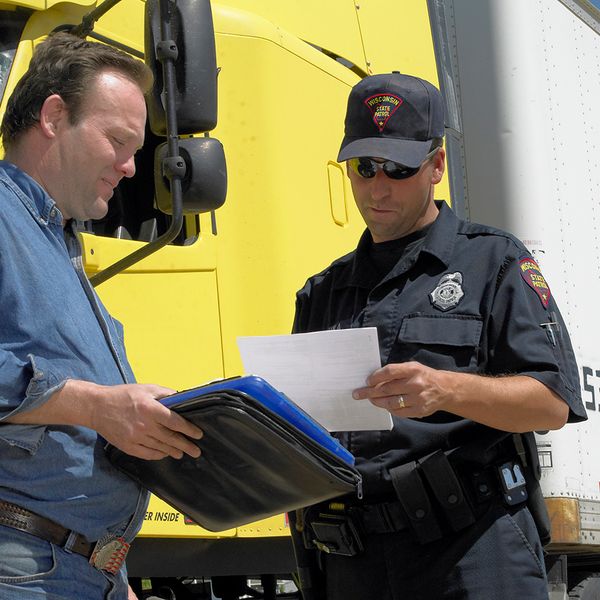Passenger-carrier roadside inspections and audits reveal eye-opening findings
As passenger-carrying vehicle crashes grab headlines, carrier safety programs are under a legal microscope. Many carriers added service offerings to survive the pandemic-driven downturn. Consequently, these carriers now have more diverse fleets, which can be challenging from a compliance and vehicle readiness standpoint.
Below is an examination of the 2022 Top 10 roadside inspection and Federal Motor Carrier Safety Administration (FMCSA) audit violations and potential remedial actions.
Roadside inspections
Passenger-carrying vehicle drivers are not inspected en route with passengers on board unless there is an imminent danger. Most inspections occur at the destination, such as an event location or the carrier’s terminal. Violations tend to be issued because an officer observed a vehicle defect or unsafe driver act.
In 2022, based on the Top 10 roadside inspection violations, two significant areas of focus and recommended remedial actions are:
1. Unsafe driving: Violating local laws (392.2) was number one on the list, usually including speeding or other dangerous acts that put passengers, the motoring public, and the company at risk.
Remedial action: Implement a video-driven monitoring, coaching, corrective action,and training program to eliminate unsafe and illegal behaviors.
2. Vehicle readiness: Except for vehicle marking at Number 6, and registration and license plate violations at Number 7, the remainder are vehicle parts and accessories or are inspection-related.
Remedial actions: Continuously train and require drivers to conduct thorough pre-trip inspections and conduct planned maintenance and inspections.
- 2022 Passenger-Carrier Roadside Inspection Violations
# Violation Type Violations Description 1 392.2 Other Violation of local laws 2 396.3a1 Vehicle Inspection, repair, and maintenance of parts and acc. 3 393.9 Vehicle Inoperable required lamp 4 396.5b Vehicle Oil and/or grease leak 5 393.95a Vehicle No/discharged/unsecured fire extinguisher 6 390.21TB Other Carrier name and/or USDOT number not displayed 7 392.2RG Other State vehicle registration or license plate violation 8 396.17c Vehicle Operating a CMV without proof of periodic inspection 9 393.62e Vehicle No or inadequate bus emergency exit marking 10 393.78 Vehicle Windshield wipers inoperative/ defective
FMCSA audits
FMCSA audits can focus on one or two areas in an offsite focused audit or include all six factors in a comprehensive review. Auditors can take all the time they need to dig into areas of concern.
The 2022 Top 10 audit result trends and recommended remedial actions were as follows:
1. Drug and alcohol testing: Half of the violations were in the Department of Transportation (DOT) drug and alcohol testing program or were Clearinghouse query-related.
Remedial actions: Drug and alcohol testing program requirements and Clearinghouse procedures need third-party administrator (TPA) expertise and oversight or driver management system support with substantial training for in-house administrators.
2. Hours of service (HOS): Falsifying logs, driving over 10 hours, missing logs, and not using the correct method to record hours of service were four of the top ten violations.
Remedial actions: Regular (weekly or daily) HOS electronic log and time record audits (local drivers) for falsification and driving violations modified to detect areas of abuse such as personal conveyance, unassigned driving, and improper use of off-duty time in place of on-duty (not driving).
3. Driver qualification (DQ): Missing or incomplete DQ file documents, namely the driver application at number five. In the Top 20 were also missing annual reviews and motor vehicle records (MVR).
Remedial actions: Conduct DQ file audits at the time of hire and ongoing by utilizing a driver management system to track required actions.
- 2022 Passenger-Carrier Audit Violations
| # | Violation | Type | Violations Description |
|---|---|---|---|
| 1 | 382.701(a) | Other | Pre-employment query-related |
| 2 | 382.701(b)(1) | Other | Annual query-related |
| 3 | 395.8(e)(1) | Other | False reports of records of duty status (RODS) |
| 4 | 395.8(f) | Critical | Failing to prepare RODS in form and manner |
| 5 | 391.21(a) | Other | Incomplete or no driver employment application |
| 6 | 382.711(b) | Other | Clearinghouse registration-related |
| 7 | 382.602(b) | Other | Failing to provide driver DOT drug and alc. policy |
| 8 | 395.5(a)(1) | Other | 10-hour driving rule violation (Passenger) |
| 9 | 382.301(a) | Other | Using a driver before a pre-empl. drug test result |
| 10 | 395.8(a)(1) | Other | Not using the appropriate method to record HOS |
If you would like more information on passenger carrier regulations, check out the Passenger Vehicles ezExplanation
Keys to remember: Passenger carriers must demonstrate to their customers, jurors, and enforcement that they comply and uphold their duty to operate safely. Carriers should make the necessary changes to be defensible and to prove they run a safe and responsible operation.






















































